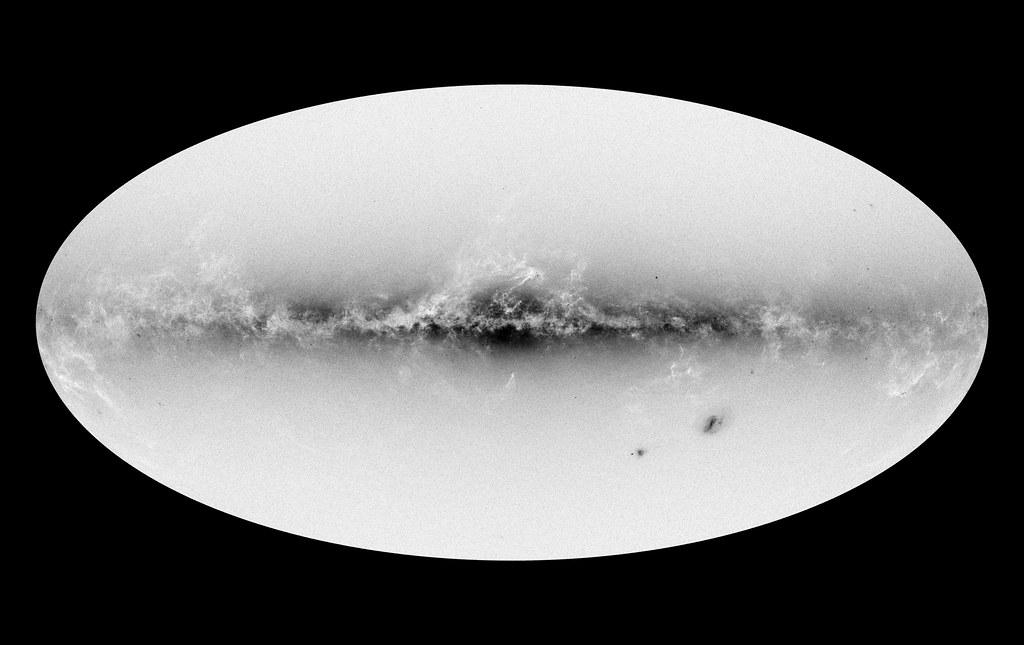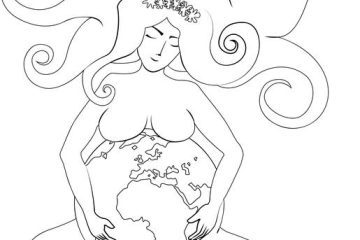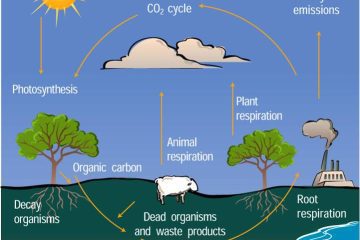In a world where the delicate balance between humanity and nature is constantly under scrutiny, the Gaia Hypothesis emerges as a beacon of interconnected wisdom. This groundbreaking environmental movement, deeply rooted in the idea of Earth as a self-regulating organism, challenges our perception of the planet and our place within it. Let’s embark on a journey to explore the intricate tapestry of the Gaia Hypothesis and uncover how it shapes our understanding of environmental sustainability and interconnectedness.
Table of Contents
- Exploring the Gaia Hypothesis: A Dive into Earth’s Self-Regulating Systems
- The Influence of the Gaia Hypothesis on the Environmental Movement
- Harnessing Gaia’s Wisdom: Practical Recommendations for Sustainable Living
- Gaia’s Legacy: Shaping the Future of Environmental Conservation
- Q&A
- To Wrap It Up
Exploring the Gaia Hypothesis: A Dive into Earth’s Self-Regulating Systems
Exploring the Gaia Hypothesis unveils a captivating perspective on Earth as a self-regulating organism. This revolutionary concept suggests that the planet operates as a single, complex system with various interconnected processes working synergistically to maintain environmental balance. From the intricate web of ecosystems to the cycles of carbon and water, Gaia theory highlights the interdependence of all living and non-living components on Earth.
Envision Earth as a living entity, adapting and evolving to sustain life as a whole. The Gaia Hypothesis challenges conventional views by portraying the planet as a dynamic and self-regulating entity capable of regulating its climate, atmosphere, and chemistry. By delving into the Gaia paradigm, we gain a deeper appreciation for the interconnectedness of life on Earth and the delicate balance that exists within this awe-inspiring biosphere.

The Influence of the Gaia Hypothesis on the Environmental Movement
The Gaia Hypothesis, proposed by scientist James Lovelock, presents a profound perspective that views the Earth as a self-regulating organism, where living organisms and their inorganic surroundings are interconnected to maintain life’s stability. This concept suggests that the Earth functions as a single living system, constantly adjusting and evolving. The idea of Gaia as a sentient being has sparked contemplation and discussion within the environmental movement, fostering a more holistic approach to conservation and sustainability efforts.
One impactful aspect of the Gaia Hypothesis on the environmental movement is the shift towards recognizing the interconnectedness of all components of the planet. By acknowledging the Earth as a complex, interdependent system, individuals and organizations have begun to emphasize the importance of preserving biodiversity, restoring ecosystems, and promoting sustainable practices. This perspective encourages a deeper appreciation for the intrinsic value of nature and prompts actions that aim to nurture the Earth’s health for the benefit of all life forms.
Harnessing Gaia’s Wisdom: Practical Recommendations for Sustainable Living
In today’s fast-paced world, the connection between humanity and the environment has never been more crucial. Embracing the concepts of the Gaia hypothesis can offer us profound insights into how we can live more sustainably and harmoniously with our planet. By understanding that Earth is a living, interconnected system, we can begin to make meaningful changes in our lifestyles that benefit not only ourselves but the entire ecosystem.
Practical recommendations for sustainable living inspired by the Gaia hypothesis can range from simple daily habits to larger societal transformations. Embracing reduce, reuse, recycle principles is a great starting point. Additionally, supporting local and organic farming practices, reducing energy consumption, and advocating for policies that protect natural habitats are all powerful ways to align with Gaia’s wisdom. By incorporating these practices into our lives, we can actively contribute to the health and well-being of our planet for generations to come.
| Practice | Impact |
|---|---|
| Composting food waste | Reduces landfill waste and enriches soil |
| Biking or walking instead of driving | Decreases carbon emissions and promotes physical health |
| Supporting local farmers markets | Reduces carbon footprint from food transportation |

Gaia’s Legacy: Shaping the Future of Environmental Conservation
The interconnectedness of all living beings on Earth is at the core of Gaia’s Legacy. This intricate web of life emphasizes the importance of every organism in shaping our planet’s future. Through the Gaia hypothesis, we understand that the Earth is a self-regulating system where each component plays a vital role in maintaining the delicate balance of nature. By recognizing and honoring this inherent wisdom, we can pave the way for a sustainable future driven by mutual respect and harmony.
Environmental conservation is not merely a movement but a fundamental shift in perspective towards our relationship with the natural world. Embracing the principles of the Gaia hypothesis invites us to acknowledge our responsibility as stewards of the Earth, promoting biodiversity, and preserving ecosystems. By engaging in mindful practices such as reducing waste, supporting renewable energy sources, and advocating for conservation efforts, we can actively contribute to the ongoing legacy of Gaia and foster a future where nature thrives alongside humanity.
Q&A
Certainly! Here’s a creative Q&A for the article about the Gaia Hypothesis and the Environmental Movement:
Q: What is the Gaia Hypothesis all about, and how does it relate to the Environmental Movement?
A: The Gaia Hypothesis suggests that the Earth functions as a self-regulating system, similar to a living organism. It posits that the Earth and all its living organisms form a complex interacting system that maintains environmental conditions suitable for life. This hypothesis has influenced the Environmental Movement by emphasizing the interconnectedness of all life forms and the importance of preserving the planet’s delicate balance.
Q: How can individuals contribute to supporting the Gaia Hypothesis and the Environmental Movement?
A: Individuals can contribute by adopting sustainable practices in their daily lives, such as reducing waste, conserving energy, supporting eco-friendly initiatives, and advocating for environmental policies. By making conscious choices that benefit the planet, individuals can play a significant role in supporting the principles of the Gaia Hypothesis and the Environmental Movement.
Q: What are some key challenges facing the Gaia Hypothesis and the Environmental Movement today?
A: Some key challenges include climate change, deforestation, pollution, loss of biodiversity, and overall environmental degradation. Addressing these challenges requires global cooperation, innovative solutions, and a shift towards more sustainable practices to ensure the long-term health and well-being of the planet.
Q: How can raising awareness about the Gaia Hypothesis benefit the Environmental Movement?
A: Raising awareness about the Gaia Hypothesis can help educate people about the interconnectedness of all living things and the importance of preserving the Earth’s natural systems. By promoting a deeper understanding of these concepts, individuals are more likely to take action to protect the environment and support initiatives that align with the principles of the Gaia Hypothesis.
Hopefully, these creatively crafted Q&A points provide insights into the Gaia Hypothesis and its connection to the Environmental Movement.
To Wrap It Up
As we delve deeper into the realms of the Gaia Hypothesis and the environmental movement it has sparked, it becomes evident that our interconnectedness with the Earth is not a mere concept but a profound reality. By embracing the principles of Gaia, we are reminded of our role as stewards of this precious planet and the importance of preserving its intricate balance for generations to come.
Let us continue to nurture our relationship with Mother Earth, seeking harmony and sustainability in all our endeavors. Together, we can cultivate a future where humanity and nature coexist in a beautiful symphony of life. Join hands with fellow Earthlings and embark on this journey towards a greener, more vibrant world. Embrace the Gaia Hypothesis, honor our planet, and let us be the change we wish to see in the world.



0 Comments